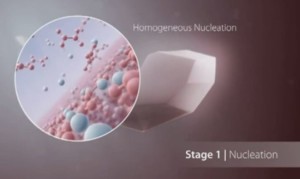 Stone disease is the cause of significant morbidity in our society. It is estimated that approximately 12% of the population will have a renal stone at some point in their lives. In the United States and other industrialized countries, kidney stones are more common in men than in women. Twelve percent of men and 5% of women will suffer from renal stones by the age of 70 years. Patients with a history of stones, have a 50% risk of developing another stone within 5-10 years. Moreover, in selected patients, repeat stone formation rates may approach 80% over their lifetime. In addition, calculi are more common in white patients than in Afro-Americans. The prevalence of urinary calculi increases with age, attaining a maximum in the 40 – 60 year category among white patients and somewhat later in non-white patients. After the age of 60, the prevalence decreases and approaches 0 by the ninth decade of life. The incidence of renal stones varies between countries.
Stone disease is the cause of significant morbidity in our society. It is estimated that approximately 12% of the population will have a renal stone at some point in their lives. In the United States and other industrialized countries, kidney stones are more common in men than in women. Twelve percent of men and 5% of women will suffer from renal stones by the age of 70 years. Patients with a history of stones, have a 50% risk of developing another stone within 5-10 years. Moreover, in selected patients, repeat stone formation rates may approach 80% over their lifetime. In addition, calculi are more common in white patients than in Afro-Americans. The prevalence of urinary calculi increases with age, attaining a maximum in the 40 – 60 year category among white patients and somewhat later in non-white patients. After the age of 60, the prevalence decreases and approaches 0 by the ninth decade of life. The incidence of renal stones varies between countries.
The mechanisms of stone formation also vary from country to country. In western cultures, for example, dietary plentitude contributes to stone formation. In the mid-east, schistosomiasis is a frequent cause of urinary stone disease.
For the management of renal stones, there is an explosion in technical innovations. Today, the endourologist possesses an assortment of minimally invasive tools to treat renal stones. Most patients may receive fast, safe and effective treatment in the outpatient setting. However, despite the many technical advances, anatomical malformations of the urinary tract and complex stones continue to provide a significant challenge to the urologist. Visit www.urologystone.com to see the different types of renal calculi a urologist is likely to encounter in his or her practice and the various treatment options for kidney, ureteral and bladder stones. In addition, potential difficulties with diagnosis, access of a stone, its fragmentation and clearance will be discussed. Finally, a variety of urinary stone presentations and treatment strategies for cost-effective management are addressed.
Contact your physician now at St Pete Urology and set an appointment to remove that urinary stone and avoid further complications.
